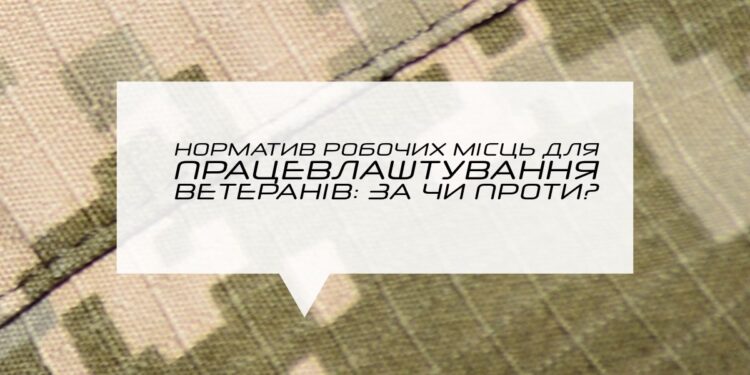Veteran Employment in Ukraine: Rights, Not Quotas Alone
In Ukraine, our colleagues from the Military-Security Trade Union are actively contributing to a clear and constructive vision for the employment of veterans. Their work is rooted in a simple but essential principle: the veteran’s will to work must be the starting point.
Veterans want to work, and it is the responsibility of the Ukrainian state to create the conditions that make this possible. This includes education, retraining, and upskilling, so that veterans become competitive and confident in the civilian labor market.
Legislation must support—not undermine—this process. The law must not be used to create “dead souls” in businesses—situations where veterans are listed on paper but are not truly integrated into the workplace. Veterans have the right to meaningful employment, and no one should be denied a job because of their status as a veteran.
On 24 July, hearings were held in the relevant Verkhovna Rada committee on the question:
“Is there a legally established quota for employing war veterans in enterprises, institutions, and organizations (public and private sectors)?”
At these hearings, the position of the Platform and the Military-Security Trade Union was presented by Halyna Kavun, Chair of the Kyiv Board:
“We propose mandatory quotas for veteran employment in the public sector, based on a reasonable and sector-specific approach. For the private sector, we advocate for incentives rather than coercion.”
This approach reflects a realistic and balanced view. While the idea of quotas may raise concerns or differing opinions among veterans themselves, the current focus must be on effective legislation. As our colleagues noted, if coercive measures are introduced without proper safeguards, there is a serious risk of further stigmatizing veterans or pushing businesses into the shadow economy, both of which would have damaging consequences for Ukrainian society.
It is also clear that some sectors are not suitable for many veterans, particularly those who have returned with health issues. These sectors often include physically demanding or hazardous jobs. It is not a matter of unwillingness or lack of respect, but of objective constraints. Imposing uniform quotas in such areas would create unfair conditions for employers and false expectations for veterans.
This issue is not just about employment numbers, but about the quality and sustainability of veteran employment. Our colleagues rightly emphasize that employment should be empowering, not symbolic or punitive.
A further concern is the proposed new Labor Code of Ukraine, which, shockingly, mentions the word “veteran” only once. This omission must be addressed. The Labor Code is a key document for labor relations, workers’ rights, and social dialogue in Ukraine. Veterans must be explicitly included and protected.
Moreover, as our colleagues remind us, current military personnel are legally excluded from social dialogue mechanisms under Article 17 of the Law “On the Armed Forces of Ukraine.” This exclusion contradicts the principles of fairness and inclusion and must be resolved.
The Military-Security Trade Union has already submitted its proposals on these issues to the Ukrainian Government and has expressed readiness to work with the parliamentary committee and other trade unions to develop a comprehensive strategy.
Their message is clear: this is not only a question of employment statistics, but of rights, dignity, and future prospects. Ukrainian legislation must reflect the true needs of veterans—and of society as a whole—by creating humane, practical, and inclusive policies.
As this debate continues, our Ukrainian colleagues reaffirm their commitment to keeping the community informed and involved. The path forward must be one of cooperation, not confrontation, and of respect, not rhetoric.

